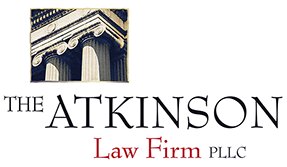Best Citizenship by Investment Lawyers in North Carolina
Share your needs with us, get contacted by law firms.
Free. Takes 2 min.
Or refine your search by selecting a city:
List of the best lawyers in North Carolina, United States
About Citizenship by Investment Law in North Carolina, United States
Citizenship by investment is a term typically used to describe programs through which individuals can obtain citizenship in a country by making a significant financial investment. However, it is important to note that the United States does not have a federal Citizenship by Investment program. Instead, the US offers certain pathways to lawful permanent residency (commonly referred to as a green card) through investment, such as the EB-5 Immigrant Investor Program. Once an individual becomes a legal permanent resident, they can eventually apply for citizenship through naturalization if all requirements are met. In North Carolina, as in other states, these pathways are governed by federal laws, but local legal professionals can guide investors through the necessary steps from a state-specific perspective.
Why You May Need a Lawyer
Applying for lawful permanent residency through investment in the United States is a complex process that requires careful attention to legal rules and documentation. Here are some common situations where legal help is valuable:
- Navigating the EB-5 or related investment programs and ensuring investment meets federal requirements
- Verifying eligibility and compliance with both state and federal regulations
- Dealing with issues regarding source of funds, which must be clearly documented and lawful
- Responding to requests for evidence from US Citizenship and Immigration Services (USCIS)
- Handling delays, denials, or complications in the investment immigration application process
- Coordinating with regional centers or qualifying North Carolina businesses
- Understanding the tax and estate planning implications of investing and relocating to the United States
- Ensuring proper representation during interviews or hearings, if required
A qualified immigration lawyer can help you avoid common mistakes, save time, and improve your chances of a successful outcome.
Local Laws Overview
While the path to citizenship through investment is governed primarily by federal law, certain aspects are particularly relevant to applicants in North Carolina:
- State-specific business regulations: If you invest in or establish a business in North Carolina, you must comply with state laws regarding incorporation, licensing, taxes, and employment.
- Regional Centers: North Carolina has USCIS-designated regional centers that can help facilitate EB-5 investments. Legal counsel can help vet and select legitimate centers.
- Real estate and investment laws: North Carolina law governs real property transactions, including purchase, leasing, and development if the investment involves real estate.
- State taxation: Individuals relocating to North Carolina will need to understand personal and corporate state tax obligations.
- Legal documentation: All legal documents, including contracts and filings for investments or business operations, must meet state and local requirements in addition to federal guidelines.
An experienced attorney familiar with both North Carolina and federal law can provide vital guidance as you progress through the investment and immigration process.
Frequently Asked Questions
What is Citizenship by Investment, and does it exist in North Carolina?
The United States does not offer direct citizenship by investment. However, the EB-5 program allows for lawful permanent residency through investment, which can eventually lead to citizenship through naturalization after meeting residency and other requirements.
What is the EB-5 Immigrant Investor Program?
The EB-5 program is a federal program allowing eligible investors and their families to become lawful permanent residents by investing at least 1,050,000 dollars, or 800,000 dollars in a targeted employment area, in a new commercial enterprise that creates or preserves at least 10 full-time jobs for US workers.
How long does the process take from investment to citizenship?
The process can take several years. After investment and approval, you may receive conditional permanent residency for two years. After conditions are removed, you may qualify for citizenship after five years as a lawful permanent resident, subject to meeting other eligibility criteria.
Can I invest in any business in North Carolina for the EB-5 program?
Not all businesses qualify. The investment must be in a new or restructured commercial enterprise that meets the job creation and capital investment requirements of the EB-5 program. It's important to consult with legal professionals before proceeding.
Do I need to live in North Carolina if I invest there?
While you can choose to live anywhere in the United States as a permanent resident, you may need to spend time in North Carolina if your investment or job creation is tied to specific local requirements or for practical business reasons.
Is the EB-5 application risky?
Yes. Investments are expected to be at risk for US immigration purposes, and there is no guarantee of a green card or a return on your investment. Proper legal and financial advice can help mitigate unnecessary risks.
What are targeted employment areas (TEAs) and why do they matter in North Carolina?
TEAs are areas designated as rural or with high unemployment. Investment minimums are lower in TEAs. Qualified North Carolina regions may be designated as TEAs, which can make them attractive for EB-5 applicants.
What documentation is required for the investment application?
Required documentation includes proof of lawful investment funds, business plans, job creation projections, personal identification, and various legal forms. Your attorney will help gather and prepare all necessary documents.
Can family members be included in my application?
Yes. Your spouse and unmarried children under 21 can be included in your EB-5 investment application and, if approved, will receive lawful permanent residency with you.
What happens if my EB-5 petition is denied?
If your petition is denied, you may have options to appeal or reapply. An attorney can review the denial, advise on next steps, and help with any new filings or responses as needed.
Additional Resources
If you need more information on Citizenship by Investment or related lawful permanent residency through investment in North Carolina, consider these resources:
- US Citizenship and Immigration Services (USCIS) - for federal program requirements and forms
- North Carolina Secretary of State - for business formation and registration information
- North Carolina Bar Association - for finding qualified immigration attorneys
- Local regional centers designated by USCIS operating in North Carolina
- North Carolina Department of Revenue - for state tax guidelines for new residents and business investors
- American Immigration Lawyers Association (AILA) - for legal professionals with experience in investment immigration
Next Steps
If you are considering pursuing lawful permanent residency through investment in North Carolina, the following steps can help guide you:
- Consult with an experienced immigration attorney familiar with investment-based residency programs and North Carolina’s business environment
- Prepare all necessary documentation, including proof of investment funds and business plans
- Understand federal and state legal requirements for your proposed investment
- Carefully consider risks and benefits, including potential for delays and financial loss
- If you choose to proceed, have your attorney oversee all filings and communications with governmental agencies
- Plan for long-term residency and compliance with all US and North Carolina laws
Starting your journey with trusted legal advice increases your chances of success and helps ensure compliance with all relevant regulations.
Lawzana helps you find the best lawyers and law firms in North Carolina through a curated and pre-screened list of qualified legal professionals. Our platform offers rankings and detailed profiles of attorneys and law firms, allowing you to compare based on practice areas, including Citizenship by Investment, experience, and client feedback.
Each profile includes a description of the firm's areas of practice, client reviews, team members and partners, year of establishment, spoken languages, office locations, contact information, social media presence, and any published articles or resources. Most firms on our platform speak English and are experienced in both local and international legal matters.
Get a quote from top-rated law firms in North Carolina, United States — quickly, securely, and without unnecessary hassle.
Disclaimer:
The information provided on this page is for general informational purposes only and does not constitute legal advice. While we strive to ensure the accuracy and relevance of the content, legal information may change over time, and interpretations of the law can vary. You should always consult with a qualified legal professional for advice specific to your situation.
We disclaim all liability for actions taken or not taken based on the content of this page. If you believe any information is incorrect or outdated, please contact us, and we will review and update it where appropriate.
Browse citizenship by investment law firms by city in North Carolina
Refine your search by selecting a city.









